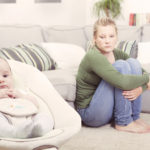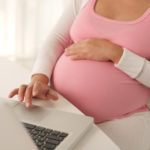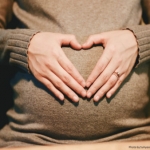When I meet with mothers of new babies, I often spend a fair amount of time delving into their beliefs about parenting and what they perceive as the “right” way to care for their new baby. Granted, most of the new mothers I see suffer from depression or anxiety, but I can also look to my family, friends, and colleagues to see that baby advice — whether tips from well-meaning friends and family members or scientifically driven recommendations from experts — can do more harm than good.
New mothers feel such a tremendous amount of pressure and too often believe that there is only One Right Way to care for their baby and that deviating from this plan will put their child in harm’s way or, at the very least, will compromise their child’s well-being.
When a sleep-deprived new mother comes in and talks about how she is struggling to breastfeed her baby and how she is waking up at night every two hours to pump in order to increase her milk supply, I ask her if she has considered supplementing with formula. She shakes her head vehemently and tells me that her pediatrician told her that she should avoid formula and that she should breastfeed exclusively for the first year of her child’s life.
Yes, the American Academy of Pediatrics (AAP) recommends exclusive breastfeeding for the first six months of a child’s life, followed by continued breastfeeding for 1 year or longer, “as mutually desired by mother and child.” In the world of sleep-deprived parents who obviously want to do the best for their babies, these sorts of recommendations become rules and new mothers often sacrifice their own health and well-being in other to comply with them. And how can you blame them? The recommendations released by professional organizations like the AAP are backed by solid scientific research.
And baby advice books may make things even worse. When a mother doesn’t want to call the pediatrician at three in the morning (often because she already called several times earlier in the day and the pediatrician was starting to sound annoyed), she picks up one of the many baby-oriented books at her bedside. And if she doesn’t agree with that book or if it fails to fix the problem, she picks up another book, and another, and another…
What spurred me to write this piece was a fantastic article by Oliver Burkeman in the Guardian on the baby advice industry. As a new parent and a writer who has focused on self-help books and pop psychology, his take on things is illuminating. He explores “the diabolical genius of the baby-advice industry, which targets people at their most sleep-deprived, at the beginning of what will surely be the weightiest responsibility of their lives, and suggests that maybe, just maybe, between the covers of this book, lies the morsel of information that will make the difference between their baby’s flourishing or floundering.”
He wisely remarks that “baby advice isn’t only, or perhaps even mainly, about raising children. Rather, it is a vehicle for the yearning – surely not unique to parents – that if we could only track down the correct information and apply the best techniques, it might be possible to bring the terrifying unpredictability of the world under control, and make life go right.”
What I see clinically is that when new mothers — women who are so accomplished in other domains of their lives — feel that they are not able to master this new task and do not seem able to steer their boat in the right direction, they can feel inept and demoralized, and these feelings can sometimes lead to depression and anxiety.
According to research from Swansea University, baby advice books may contribute to this sense of depression and despair. Commenting on her research study following 354 new mothers, Vicoria Harries notes: “What was interesting about our research was that mothers’ experiences of using the books really seemed to matter. If mothers found the books useful, they were not at increased risk of depression or low confidence. However, if mothers felt worse after reading the books, they were at greater risk. Unfortunately, far more mothers found the books had a negative impact than a positive one. Whilst 22% reported that they felt calmer after reading the books, 53% felt more anxious.”
Obviously baby advice books are not all bad; however, our problem is our tendency to search for and rely upon black-and-white rules and recommendations for something as complex and nuanced as parenting. When we act as if there is clearly “a right way” and clearly “a wrong way” to take care of a baby or parent a child, we risk being judgmental, unsupportive, and at worst, misleading.
I spend a lot of time thinking how we can best support new mothers. At times, I wonder if things would be better if we could rely solely on the home-grown, experience-driven wisdom of our mothers, sisters, and aunts. But many of us don’t have those resources, or we doubt the advice of Aunt Betsy who recommends a pint of Guinness to boost milk production.
But science can’t answer all of our questions, and it would be foolish to assume the existence of a one-size-fits-all approach to parenting. Instead we must help mothers to become self -reliant so that they can learn to thoughtfully evaluate a given situation and to choose the best options for the baby, for her, and for the rest of the family.
I don’t have a real solution for this problem, but I find comfort in the words of Donald Winnicott, a British pediatrician and psychoanalyst from 1953:
A mother is neither good nor bad nor the product of illusion, but is a separate and independent entity: The good-enough mother .. starts off with an almost complete adaptation to her infant’s needs, and as time proceeds she adapts less and less completely, gradually, according to the infant’s growing ability to deal with her failure. Her failure to adapt to every need of the child helps them adapt to external realities.
Ruta Nonacs, MD PhD
Burkeman, O. The diabolical genius of the baby advice industry. The Guardian, 2018.
Harries V & Brown A. The association between use of infant parenting books that promote strict routines, and maternal depression, self-efficacy, and parenting confidence. Early Child Development and Care, November 2017.








Leave A Comment